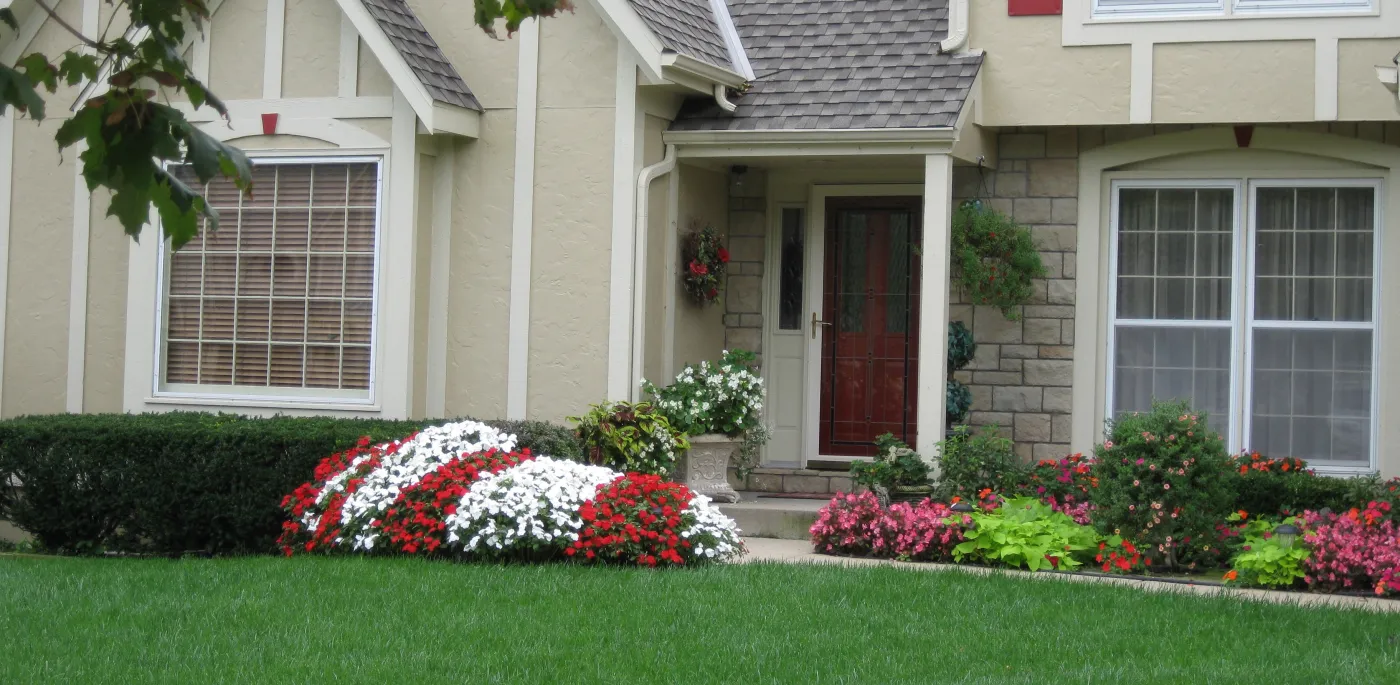In the previous post, we decisively proved that there are very good reasons to cherish our carpets of green! But with great power comes great responsibility.. Here are five ways to become an environmentally sensitive Gainesville lawn owner.
1. Use a mulching mower. When you fertilize a lawn, the fertilizer’s most important and expensive component — nitrogen — goes into making green grass blades. If you bag your clippings and put them out with the trash, you might as well dump half of your fertilizer in the trash as well. Plus, you’re filling up landfills with material that’s easily compostable. A mulching mower chops the clippings into fine particles and returns them to decompose on the lawn. This returns the original nitrogen, so you don’t have to fertilize as much; as well as water and other nutients contained in the leaf blade.
If you've hired a Gainesville Lawn company, you can ask them to specifically use mulching blades on your lawn to reap the same benefits.
2. Water wisely. Don’t set your sprinkler system gainesville, fl on automatic so it waters for 20 minutes every day at 4 AM. This wastes water, increases fungus and lawn disease problems, and turns your grass into a shallow-rooted, water-craving junkie. Most lawns need no more than a few inches of Gainesville irrigation a week. An easy way to measure this is by placing a couple of empty, 5-ounce tuna cans on the lawn before you turn on the sprinkler. When the cans are filled, you’ve watered enough. Water when it’s cool in early morning, so the water doesn’t evaporate before it does the job.

Water in early morning when it’s cool.
3. Don’t over fertilize. Doing so means more mowing, more disease problems, and more bugs. Select a fertilizer formulated for your grass. Gainesville lawn fertilization can be tricky with our unpredictable weather; so be careful. Feed warm-season grasses (Bermuda, Zoysia, St. Augustine, buffalograss) once in late spring and once in summer. (Feed centipede only once in late spring.) If you object to chemical fertilizers, use an organic alternative, like Sustane 8-2-4. Unlike synthetic fertilizer, Sustane’s nitrogen comes from composted turkey litter and feather meal, not natural gas. Yes, it’s more expensive. But it releases nutrients slowly and is good for the soil. What’s good for the soil is good for your grass.

Sustane organic fertilizer. Turkey litter never smelled so good.
4. Don’t scalp the lawn. Grass blades make food for the lawn. Scalping them off starves the lawn. Roots stop growing. Then the lawn turns brown, so you immediately have to water, and pretty soon you’re out there mowing like an idiot again. You know what likes to be scalped? No, not General Custer. Weeds. Lawn weeds thrive on close cutting. The more you scalp your lawn, the more weedy it will be. So mow high — no shorter than 3-4 inches. Don’t mow at all in dry weather. Tall grass stays green a lot longer than short grass and you’ll save a lot of water.
5. Speaking of weeds, forget the weed & feed. Yeah, I know, it sounds like you’re getting a two-fer here, so what’s wrong with that? Plenty. For starters, most big box stores start selling it in March, while warm-season grasses are still dormant and brown. Use it then and you’re wasting the fertilizer. Second, in order for the weed-killing granules to work, they must stick to actively growing weed leaves for 48 hours. If they fall off or get washed off by rain before then, they fall to the ground and merely fertilize the weeds.

Dandelion — truly the most beautiful weed of all.
But without weed & feed, aren’t you doomed to a disgusting, weedy lawn? No. Just mow, water, and fertilize properly, and your grass will outcompete the weeds when you treat your Gainesville lawn the way it needs.
By The Grumpy Gardner, Southern living Magazine

